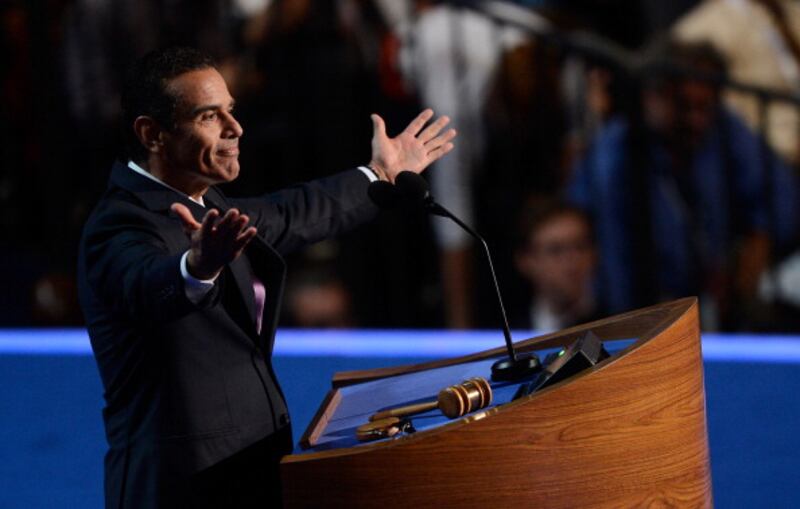For one day last week, the Democratic Party appeared to stake out a novel—yet very reasonable—position on the Israeli-Palestinian conflict. A college student from George Washington University, I was among the youngest delegates at the convention. On Tuesday, we voted to approve our platform without the usual—and hollow—promise to recognize Jerusalem as Israel's capital.
By Wednesday afternoon, however, chaos ensued in Charlotte after party officials sought to insert a plank into the platform establishing Jerusalem as the capital of Israel. In what was surely the most awkward moment of the convention, delegates voted three times on the late additions. Even when it was clear the “ayes” didn’t have the required two-thirds majority by the third round, convention chair L.A. Mayor Antonio Villaraigosa adopted the resolution anyway.

During the voice vote for the amendment, a fellow delegate from New York sitting next to me at the Time Warner Cable Arena wildly shouted “Aye!” all three times. After the mostly negative reaction to the result—many delegates, including myself, booed—I asked him why he voted for the change. His response: “I don’t know.”
The moment epitomized for me the absence of level-headed and intelligent political discourse about Israel. On so many issues, President Obama and Mitt Romney stake out diametrically opposed positions, providing voters with a stark choice. But not when it comes to Israel.
The same dynamic has plagued these issues for years: too many Democrats blindly support Israel, allowing Republicans to gain traction by attacking those of us who urge more nuanced policy positions. Last week, Republicans said delegates like me who voted “no” on the changes hate God and Israel.
That couldn’t be farther from the truth. After all, I am myself Jewish. But before supporting Israel, I support peace. The language inserted into Democratic platform does at best nothing to improve the chances for a future two-state solution to the Israeli-Palestinian conflict. And if the addition of meaningless wording that could harm the prospects for peace was disappointing, the plank’s undemocratic insertion into the platform was downright disturbing. The platform deserved the wrath it incurred.
Most supporters of an equitable two-state solution see Jerusalem as a final-status issue that must be resolved in direct negotiations between Palestinians and Israelis. A divided Jerusalem has been widely recognized by American and Israeli leaders as essential to a two-state solution, with a Palestinian capital in East Jerusalem and Israeli sovereignty over West Jerusalem. Even Israel’s current right-wing prime minister, Benjamin Netanyahu, has said (sometimes) that Jerusalem will be a subject for peace negotiations.
That’s why no U.S. presidents, including Republican administrations, have recognized Israeli sovereignty over the ancient city and the world's embassies remain based in Tel Aviv. Yet both parties always make empty campaign promises of moves toward recognition.
So why did the Democratic Party continue this destructive charade? Post-truth politics dominate our debates today on so many issues—especially this one. Rhetoric overwhelms public discourse at the exclusion of substance. When Obama repeatedly gives Israel unprecedented assurances and security aid, Mitt Romney can still state that Obama “threw Israel under the bus,” and a large swath of the population will actually believe it.
Instead of having a real discussion, the Democratic Party succumbed to criticism from the right. We adopted a resolution that is situated to the right of the position George W. Bush held when in office (despite his own platform pledges). The position ignores even the possibility of a divided Jerusalem, let alone what many see as its inevitability.
Debbie Wasserman-Schultz, chairwoman of the Democratic National Committee, recently said that “there has never been and will never be daylight between the two parties” when it comes to Israel. That’s precisely the problem.






